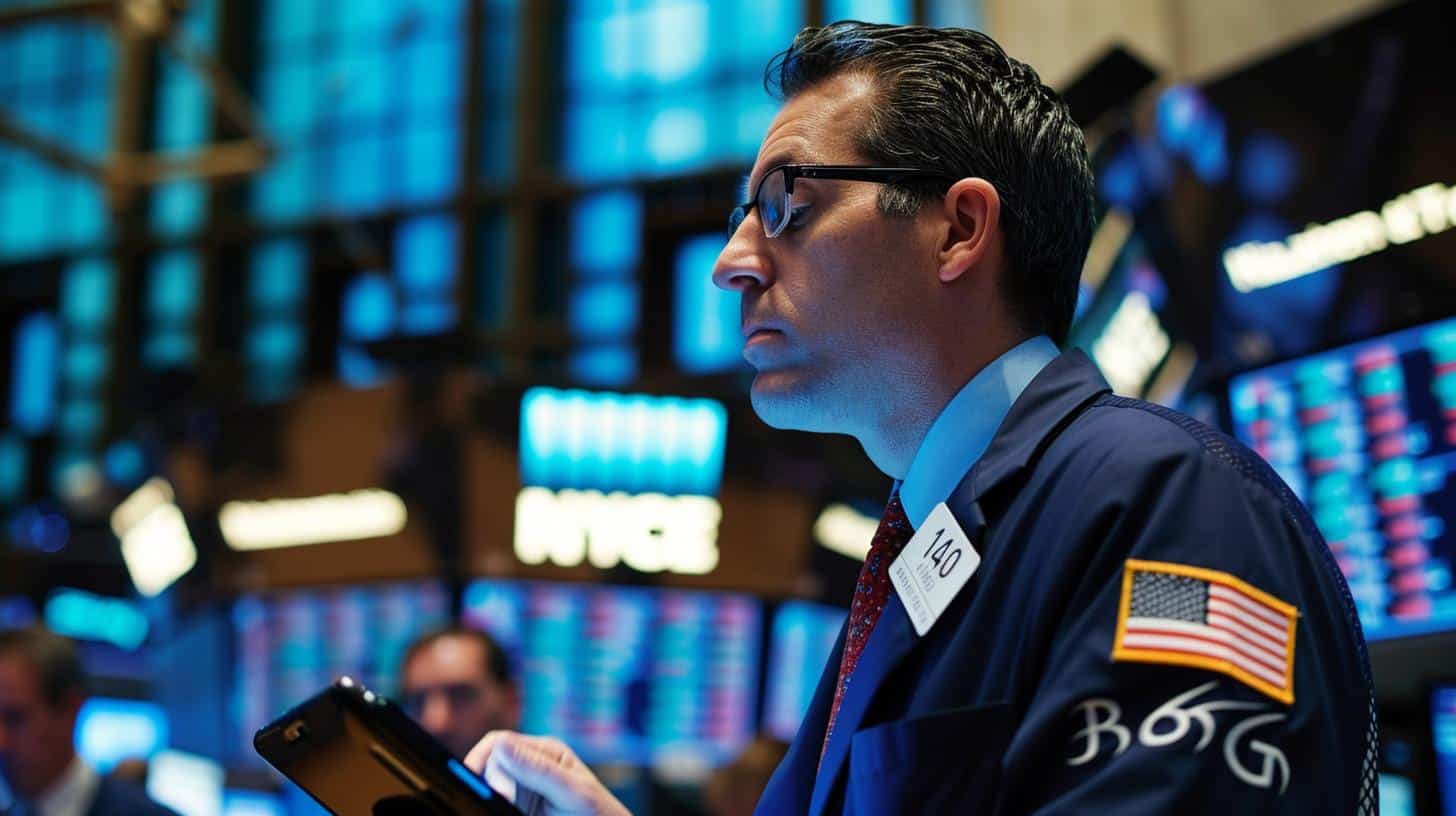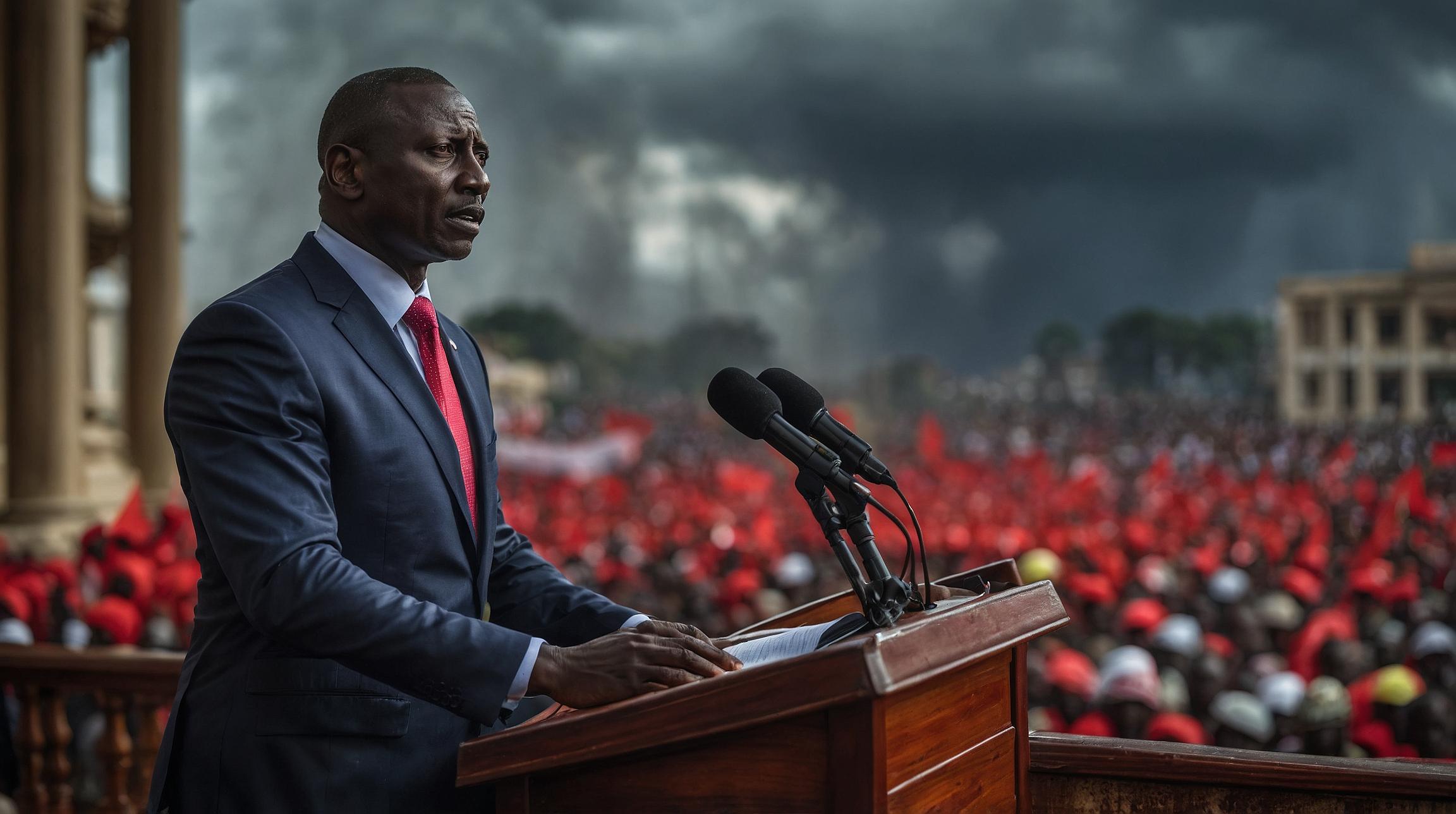The funding of President Trump’s White House ballroom by leading tech companies and diverse corporate donors reflects a strategic alignment of political and business interests. While the project’s rising costs and the demolition controversy may fuel public scrutiny, the involvement of influential firms underscores the significance of political capital in corporate America. !-- wp:paragraph -->
Contents
Complete List of White House Ballroom DonorsFinOracleAI — Market ViewComplete List of White House Ballroom DonorsFinOracleAI — Market ViewDiverse Corporate and Individual Donors Join Funding EffortComplete List of White House Ballroom DonorsFinOracleAI — Market ViewDiverse Corporate and Individual Donors Join Funding EffortComplete List of White House Ballroom DonorsFinOracleAI — Market ViewMajor Tech Giants Among Donors Financing the BallroomDiverse Corporate and Individual Donors Join Funding EffortComplete List of White House Ballroom DonorsFinOracleAI — Market ViewMajor Tech Giants Among Donors Financing the BallroomDiverse Corporate and Individual Donors Join Funding EffortComplete List of White House Ballroom DonorsFinOracleAI — Market ViewTrump’s $300 Million White House Ballroom Project UnderwayMajor Tech Giants Among Donors Financing the BallroomDiverse Corporate and Individual Donors Join Funding EffortComplete List of White House Ballroom DonorsFinOracleAI — Market View
- Opportunities: Enhanced corporate visibility and influence in political circles; potential restoration and modernization of White House facilities; new partnerships between government and private sector.
- Risks: Public backlash over use of corporate funds for politically sensitive projects; reputational risks for donors amid controversy; potential delays or cost overruns impacting stakeholder confidence.
Complete List of White House Ballroom Donors
- Altria Group Inc.
- Amazon
- Apple
- Booz Allen Hamilton Inc.
- Caterpillar Inc.
- Coinbase
- Comcast Corporation
- J. Pepe and Emilia Fanjul
- Hard Rock International
- HP Inc.
- Lockheed Martin
- Meta Platforms
- Micron Technology
- Microsoft
- NextEra Energy Inc.
- Palantir Technologies Inc.
- Ripple
- Reynolds American
- T-Mobile
- Tether America
- Union Pacific Railroad
- Adelson Family Foundation
- Stefan E. Brodie
- Betty Wold Johnson Foundation
- Charles and Marissa Cascarilla
- Edward and Shari Glazer
- Harold Hamm
- Benjamin Leon Jr.
- The Lutnick Family
- The Laura & Isaac Perlmutter Foundation
- Stephen A. Schwarzmann
- Konstantin Sokolov
- Kelly Loeffler and Jeff Sprecher
- Paolo Tiramani
- Cameron Winklevoss
- Tyler Winklevoss
FinOracleAI — Market View
The funding of President Trump’s White House ballroom by leading tech companies and diverse corporate donors reflects a strategic alignment of political and business interests. While the project’s rising costs and the demolition controversy may fuel public scrutiny, the involvement of influential firms underscores the significance of political capital in corporate America. !-- wp:paragraph -->- Opportunities: Enhanced corporate visibility and influence in political circles; potential restoration and modernization of White House facilities; new partnerships between government and private sector.
- Risks: Public backlash over use of corporate funds for politically sensitive projects; reputational risks for donors amid controversy; potential delays or cost overruns impacting stakeholder confidence.
“Lockheed Martin is grateful for the opportunity to help bring the President’s vision to reality and make this addition to the People’s House, a powerful symbol of the American ideals we work to defend every day,” a company representative said. Comcast, CNBC’s parent company, is also listed as a donor, though the exact amount contributed remains undisclosed. CNBC is in the process of spinning off from Comcast under new ownership.
!-- wp:paragraph -->Complete List of White House Ballroom Donors
- Altria Group Inc.
- Amazon
- Apple
- Booz Allen Hamilton Inc.
- Caterpillar Inc.
- Coinbase
- Comcast Corporation
- J. Pepe and Emilia Fanjul
- Hard Rock International
- HP Inc.
- Lockheed Martin
- Meta Platforms
- Micron Technology
- Microsoft
- NextEra Energy Inc.
- Palantir Technologies Inc.
- Ripple
- Reynolds American
- T-Mobile
- Tether America
- Union Pacific Railroad
- Adelson Family Foundation
- Stefan E. Brodie
- Betty Wold Johnson Foundation
- Charles and Marissa Cascarilla
- Edward and Shari Glazer
- Harold Hamm
- Benjamin Leon Jr.
- The Lutnick Family
- The Laura & Isaac Perlmutter Foundation
- Stephen A. Schwarzmann
- Konstantin Sokolov
- Kelly Loeffler and Jeff Sprecher
- Paolo Tiramani
- Cameron Winklevoss
- Tyler Winklevoss
FinOracleAI — Market View
The funding of President Trump’s White House ballroom by leading tech companies and diverse corporate donors reflects a strategic alignment of political and business interests. While the project’s rising costs and the demolition controversy may fuel public scrutiny, the involvement of influential firms underscores the significance of political capital in corporate America. !-- wp:paragraph -->- Opportunities: Enhanced corporate visibility and influence in political circles; potential restoration and modernization of White House facilities; new partnerships between government and private sector.
- Risks: Public backlash over use of corporate funds for politically sensitive projects; reputational risks for donors amid controversy; potential delays or cost overruns impacting stakeholder confidence.
Diverse Corporate and Individual Donors Join Funding Effort
Beyond Big Tech, the donor list includes companies and individuals from various industries. Palantir Technologies, Micron Technology, Coinbase, Lockheed Martin, and Continental Resources founder Harold Hamm are among contributors. The Winklevoss twins, Cameron and Tyler, also appear on the list. !-- wp:paragraph -->“Lockheed Martin is grateful for the opportunity to help bring the President’s vision to reality and make this addition to the People’s House, a powerful symbol of the American ideals we work to defend every day,” a company representative said. Comcast, CNBC’s parent company, is also listed as a donor, though the exact amount contributed remains undisclosed. CNBC is in the process of spinning off from Comcast under new ownership.
!-- wp:paragraph -->Complete List of White House Ballroom Donors
- Altria Group Inc.
- Amazon
- Apple
- Booz Allen Hamilton Inc.
- Caterpillar Inc.
- Coinbase
- Comcast Corporation
- J. Pepe and Emilia Fanjul
- Hard Rock International
- HP Inc.
- Lockheed Martin
- Meta Platforms
- Micron Technology
- Microsoft
- NextEra Energy Inc.
- Palantir Technologies Inc.
- Ripple
- Reynolds American
- T-Mobile
- Tether America
- Union Pacific Railroad
- Adelson Family Foundation
- Stefan E. Brodie
- Betty Wold Johnson Foundation
- Charles and Marissa Cascarilla
- Edward and Shari Glazer
- Harold Hamm
- Benjamin Leon Jr.
- The Lutnick Family
- The Laura & Isaac Perlmutter Foundation
- Stephen A. Schwarzmann
- Konstantin Sokolov
- Kelly Loeffler and Jeff Sprecher
- Paolo Tiramani
- Cameron Winklevoss
- Tyler Winklevoss
FinOracleAI — Market View
The funding of President Trump’s White House ballroom by leading tech companies and diverse corporate donors reflects a strategic alignment of political and business interests. While the project’s rising costs and the demolition controversy may fuel public scrutiny, the involvement of influential firms underscores the significance of political capital in corporate America. !-- wp:paragraph -->- Opportunities: Enhanced corporate visibility and influence in political circles; potential restoration and modernization of White House facilities; new partnerships between government and private sector.
- Risks: Public backlash over use of corporate funds for politically sensitive projects; reputational risks for donors amid controversy; potential delays or cost overruns impacting stakeholder confidence.
Diverse Corporate and Individual Donors Join Funding Effort
Beyond Big Tech, the donor list includes companies and individuals from various industries. Palantir Technologies, Micron Technology, Coinbase, Lockheed Martin, and Continental Resources founder Harold Hamm are among contributors. The Winklevoss twins, Cameron and Tyler, also appear on the list. !-- wp:paragraph -->“Lockheed Martin is grateful for the opportunity to help bring the President’s vision to reality and make this addition to the People’s House, a powerful symbol of the American ideals we work to defend every day,” a company representative said. Comcast, CNBC’s parent company, is also listed as a donor, though the exact amount contributed remains undisclosed. CNBC is in the process of spinning off from Comcast under new ownership.
!-- wp:paragraph -->Complete List of White House Ballroom Donors
- Altria Group Inc.
- Amazon
- Apple
- Booz Allen Hamilton Inc.
- Caterpillar Inc.
- Coinbase
- Comcast Corporation
- J. Pepe and Emilia Fanjul
- Hard Rock International
- HP Inc.
- Lockheed Martin
- Meta Platforms
- Micron Technology
- Microsoft
- NextEra Energy Inc.
- Palantir Technologies Inc.
- Ripple
- Reynolds American
- T-Mobile
- Tether America
- Union Pacific Railroad
- Adelson Family Foundation
- Stefan E. Brodie
- Betty Wold Johnson Foundation
- Charles and Marissa Cascarilla
- Edward and Shari Glazer
- Harold Hamm
- Benjamin Leon Jr.
- The Lutnick Family
- The Laura & Isaac Perlmutter Foundation
- Stephen A. Schwarzmann
- Konstantin Sokolov
- Kelly Loeffler and Jeff Sprecher
- Paolo Tiramani
- Cameron Winklevoss
- Tyler Winklevoss
FinOracleAI — Market View
The funding of President Trump’s White House ballroom by leading tech companies and diverse corporate donors reflects a strategic alignment of political and business interests. While the project’s rising costs and the demolition controversy may fuel public scrutiny, the involvement of influential firms underscores the significance of political capital in corporate America. !-- wp:paragraph -->- Opportunities: Enhanced corporate visibility and influence in political circles; potential restoration and modernization of White House facilities; new partnerships between government and private sector.
- Risks: Public backlash over use of corporate funds for politically sensitive projects; reputational risks for donors amid controversy; potential delays or cost overruns impacting stakeholder confidence.
Major Tech Giants Among Donors Financing the Ballroom
The White House has made public a list of corporate donors supporting the ballroom construction. Notably, Big Tech companies such as Amazon, Apple, Microsoft, Meta Platforms, and Alphabet have contributed significant sums. !-- wp:paragraph --> Alphabet’s $22 million donation, approximately 7% of the project’s cost, is tied to a recent settlement with Trump over his lawsuit against YouTube following his platform ban after the January 6, 2021 Capitol riot. This settlement channels funds to the Trust for the National Mall, a nonprofit dedicated to preserving the National Mall, which will in turn support the ballroom construction. !-- wp:paragraph -->Diverse Corporate and Individual Donors Join Funding Effort
Beyond Big Tech, the donor list includes companies and individuals from various industries. Palantir Technologies, Micron Technology, Coinbase, Lockheed Martin, and Continental Resources founder Harold Hamm are among contributors. The Winklevoss twins, Cameron and Tyler, also appear on the list. !-- wp:paragraph -->“Lockheed Martin is grateful for the opportunity to help bring the President’s vision to reality and make this addition to the People’s House, a powerful symbol of the American ideals we work to defend every day,” a company representative said. Comcast, CNBC’s parent company, is also listed as a donor, though the exact amount contributed remains undisclosed. CNBC is in the process of spinning off from Comcast under new ownership.
!-- wp:paragraph -->Complete List of White House Ballroom Donors
- Altria Group Inc.
- Amazon
- Apple
- Booz Allen Hamilton Inc.
- Caterpillar Inc.
- Coinbase
- Comcast Corporation
- J. Pepe and Emilia Fanjul
- Hard Rock International
- HP Inc.
- Lockheed Martin
- Meta Platforms
- Micron Technology
- Microsoft
- NextEra Energy Inc.
- Palantir Technologies Inc.
- Ripple
- Reynolds American
- T-Mobile
- Tether America
- Union Pacific Railroad
- Adelson Family Foundation
- Stefan E. Brodie
- Betty Wold Johnson Foundation
- Charles and Marissa Cascarilla
- Edward and Shari Glazer
- Harold Hamm
- Benjamin Leon Jr.
- The Lutnick Family
- The Laura & Isaac Perlmutter Foundation
- Stephen A. Schwarzmann
- Konstantin Sokolov
- Kelly Loeffler and Jeff Sprecher
- Paolo Tiramani
- Cameron Winklevoss
- Tyler Winklevoss
FinOracleAI — Market View
The funding of President Trump’s White House ballroom by leading tech companies and diverse corporate donors reflects a strategic alignment of political and business interests. While the project’s rising costs and the demolition controversy may fuel public scrutiny, the involvement of influential firms underscores the significance of political capital in corporate America. !-- wp:paragraph -->- Opportunities: Enhanced corporate visibility and influence in political circles; potential restoration and modernization of White House facilities; new partnerships between government and private sector.
- Risks: Public backlash over use of corporate funds for politically sensitive projects; reputational risks for donors amid controversy; potential delays or cost overruns impacting stakeholder confidence.
Major Tech Giants Among Donors Financing the Ballroom
The White House has made public a list of corporate donors supporting the ballroom construction. Notably, Big Tech companies such as Amazon, Apple, Microsoft, Meta Platforms, and Alphabet have contributed significant sums. !-- wp:paragraph --> Alphabet’s $22 million donation, approximately 7% of the project’s cost, is tied to a recent settlement with Trump over his lawsuit against YouTube following his platform ban after the January 6, 2021 Capitol riot. This settlement channels funds to the Trust for the National Mall, a nonprofit dedicated to preserving the National Mall, which will in turn support the ballroom construction. !-- wp:paragraph -->Diverse Corporate and Individual Donors Join Funding Effort
Beyond Big Tech, the donor list includes companies and individuals from various industries. Palantir Technologies, Micron Technology, Coinbase, Lockheed Martin, and Continental Resources founder Harold Hamm are among contributors. The Winklevoss twins, Cameron and Tyler, also appear on the list. !-- wp:paragraph -->“Lockheed Martin is grateful for the opportunity to help bring the President’s vision to reality and make this addition to the People’s House, a powerful symbol of the American ideals we work to defend every day,” a company representative said. Comcast, CNBC’s parent company, is also listed as a donor, though the exact amount contributed remains undisclosed. CNBC is in the process of spinning off from Comcast under new ownership.
!-- wp:paragraph -->Complete List of White House Ballroom Donors
- Altria Group Inc.
- Amazon
- Apple
- Booz Allen Hamilton Inc.
- Caterpillar Inc.
- Coinbase
- Comcast Corporation
- J. Pepe and Emilia Fanjul
- Hard Rock International
- HP Inc.
- Lockheed Martin
- Meta Platforms
- Micron Technology
- Microsoft
- NextEra Energy Inc.
- Palantir Technologies Inc.
- Ripple
- Reynolds American
- T-Mobile
- Tether America
- Union Pacific Railroad
- Adelson Family Foundation
- Stefan E. Brodie
- Betty Wold Johnson Foundation
- Charles and Marissa Cascarilla
- Edward and Shari Glazer
- Harold Hamm
- Benjamin Leon Jr.
- The Lutnick Family
- The Laura & Isaac Perlmutter Foundation
- Stephen A. Schwarzmann
- Konstantin Sokolov
- Kelly Loeffler and Jeff Sprecher
- Paolo Tiramani
- Cameron Winklevoss
- Tyler Winklevoss
FinOracleAI — Market View
The funding of President Trump’s White House ballroom by leading tech companies and diverse corporate donors reflects a strategic alignment of political and business interests. While the project’s rising costs and the demolition controversy may fuel public scrutiny, the involvement of influential firms underscores the significance of political capital in corporate America. !-- wp:paragraph -->- Opportunities: Enhanced corporate visibility and influence in political circles; potential restoration and modernization of White House facilities; new partnerships between government and private sector.
- Risks: Public backlash over use of corporate funds for politically sensitive projects; reputational risks for donors amid controversy; potential delays or cost overruns impacting stakeholder confidence.
Trump’s $300 Million White House Ballroom Project Underway
President Donald Trump has announced the construction of a $300 million ballroom at the White House, replacing the East Wing which was recently demolished to make space for the 90,000 square-foot facility. The demolition and construction have sparked public criticism, particularly due to prior assurances from Trump that the East Wing would remain untouched. !-- wp:paragraph --> Trump has stated the project will be funded entirely through his personal contributions alongside corporate and individual donations, explicitly excluding taxpayer money. The initial estimated cost of $200 million has now risen to $300 million, with the president yet to disclose his exact financial input. !-- wp:paragraph -->Major Tech Giants Among Donors Financing the Ballroom
The White House has made public a list of corporate donors supporting the ballroom construction. Notably, Big Tech companies such as Amazon, Apple, Microsoft, Meta Platforms, and Alphabet have contributed significant sums. !-- wp:paragraph --> Alphabet’s $22 million donation, approximately 7% of the project’s cost, is tied to a recent settlement with Trump over his lawsuit against YouTube following his platform ban after the January 6, 2021 Capitol riot. This settlement channels funds to the Trust for the National Mall, a nonprofit dedicated to preserving the National Mall, which will in turn support the ballroom construction. !-- wp:paragraph -->Diverse Corporate and Individual Donors Join Funding Effort
Beyond Big Tech, the donor list includes companies and individuals from various industries. Palantir Technologies, Micron Technology, Coinbase, Lockheed Martin, and Continental Resources founder Harold Hamm are among contributors. The Winklevoss twins, Cameron and Tyler, also appear on the list. !-- wp:paragraph -->“Lockheed Martin is grateful for the opportunity to help bring the President’s vision to reality and make this addition to the People’s House, a powerful symbol of the American ideals we work to defend every day,” a company representative said. Comcast, CNBC’s parent company, is also listed as a donor, though the exact amount contributed remains undisclosed. CNBC is in the process of spinning off from Comcast under new ownership.
!-- wp:paragraph -->Complete List of White House Ballroom Donors
- Altria Group Inc.
- Amazon
- Apple
- Booz Allen Hamilton Inc.
- Caterpillar Inc.
- Coinbase
- Comcast Corporation
- J. Pepe and Emilia Fanjul
- Hard Rock International
- HP Inc.
- Lockheed Martin
- Meta Platforms
- Micron Technology
- Microsoft
- NextEra Energy Inc.
- Palantir Technologies Inc.
- Ripple
- Reynolds American
- T-Mobile
- Tether America
- Union Pacific Railroad
- Adelson Family Foundation
- Stefan E. Brodie
- Betty Wold Johnson Foundation
- Charles and Marissa Cascarilla
- Edward and Shari Glazer
- Harold Hamm
- Benjamin Leon Jr.
- The Lutnick Family
- The Laura & Isaac Perlmutter Foundation
- Stephen A. Schwarzmann
- Konstantin Sokolov
- Kelly Loeffler and Jeff Sprecher
- Paolo Tiramani
- Cameron Winklevoss
- Tyler Winklevoss
FinOracleAI — Market View
The funding of President Trump’s White House ballroom by leading tech companies and diverse corporate donors reflects a strategic alignment of political and business interests. While the project’s rising costs and the demolition controversy may fuel public scrutiny, the involvement of influential firms underscores the significance of political capital in corporate America. !-- wp:paragraph -->- Opportunities: Enhanced corporate visibility and influence in political circles; potential restoration and modernization of White House facilities; new partnerships between government and private sector.
- Risks: Public backlash over use of corporate funds for politically sensitive projects; reputational risks for donors amid controversy; potential delays or cost overruns impacting stakeholder confidence.













